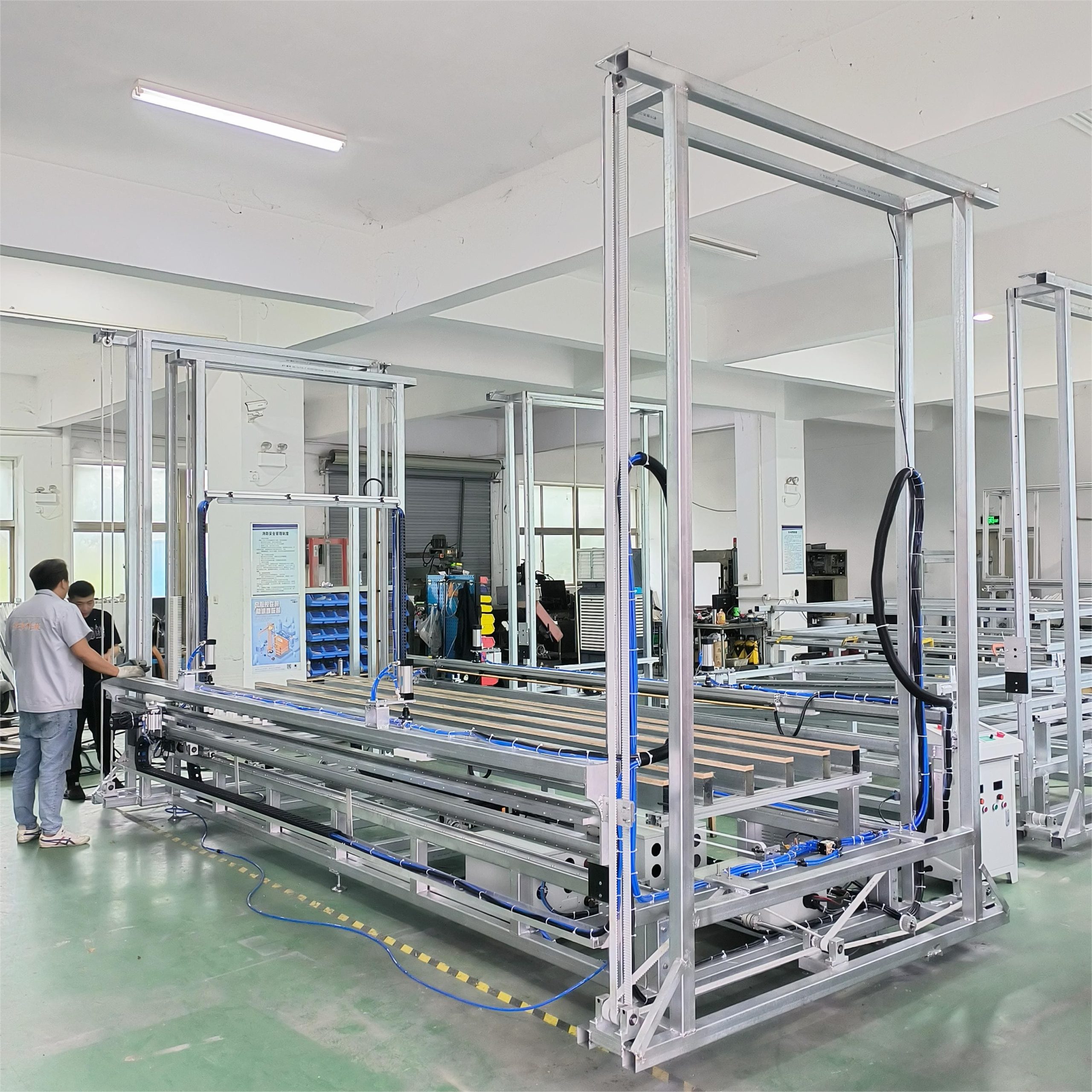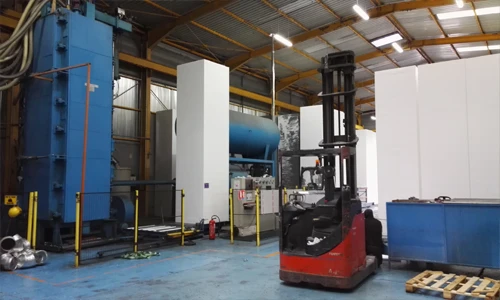Imagine a construction material so light you can lift it with ease, yet strong enough to support significant loads. That’s the power of EPS geofoam blocks. This article dives deep into the world of expanded polystyrene (EPS) geofoam blocks, exploring their size, weight, applications, and why they’re becoming a game-changer in construction. Whether you’re a seasoned engineer or simply curious about innovative building materials, this guide offers valuable insights into this versatile foam product.
1. What Exactly are EPS Geofoam Blocks and Why are They Gaining Popularity?
EPS geofoam, short for expanded polystyrene geofoam, isn’t your typical styrofoam cup material. It’s an engineered lightweight fill material produced by expanding polystyrene beads. These beads are essentially tiny spheres of plastic that are heated with steam, causing them to expand significantly. The result is a foam block composed of closed cells, primarily filled with air. This unique composition gives eps geofoam blocks their characteristic light weight and excellent insulation properties.
The rising popularity of eps geofoam in construction stems from its numerous advantages over traditional materials. Its exceptionally light weight significantly reduces the load on underlying soil and structures, simplifying installation and potentially lowering construction costs. Furthermore, its inherent thermal insulation properties make it an energy-efficient choice. As builders and engineers seek innovative and sustainable solutions, eps geofoam is increasingly becoming a preferred material.
2. Understanding the Standard Size and Dimensions of EPS Foam Blocks in Construction.
While eps geofoam blocks can be customized to fit specific project needs, there are standard sizes commonly used in construction. These standard dimensions facilitate efficient manufacturing, transportation, and handling on-site. A typical eps foam block might measure around 4 feet by 8 feet, with varying thicknesses, often ranging from a few inches to several feet. This modular size allows for easy assembly and integration into various construction designs.
The versatility in size is a key benefit. Larger blocks can provide quick fill for large areas, while smaller blocks are easier to maneuver in confined spaces. The ability to cut eps geofoam on-site using a simple hot wire cutter further enhances its adaptability. This means that while standard sizes offer convenience, the material can be readily modified to perfectly fit the unique requirements of each project. YouLi’s EPS Cutting Machine is specifically designed to handle such precise cuts, ensuring accuracy and efficiency.

3. How Much Do EPS Geofoam Blocks Weigh Compared to Traditional Construction Materials?
The remarkable light weight of eps geofoam blocks is one of its most compelling features. Compared to traditional construction materials like concrete or soil, eps geofoam is significantly lighter. For instance, the weight of eps geofoam typically ranges from 1 to 3 pounds per cubic foot (pcf), although it can be engineered with varying density to meet specific strength requirements. In contrast, soil can weigh around 100 to 120 pounds per cubic foot, and concrete can weigh even more.
This dramatic difference in weight has significant implications. Using eps geofoam as fill material can drastically reduce the load on supporting structures, which is particularly beneficial in areas with poor soil conditions or when building on existing structures. The light weight also simplifies handling and installation, potentially reducing labor costs and the need for heavy machinery. Imagine the ease of placing a large eps foam block compared to moving an equivalent volume of concrete!
4. What are the Key Applications and Use Cases for EPS Geofoam Blocks in Construction Projects?
The versatility of eps geofoam blocks allows for a wide range of applications in construction. One common use is as lightweight void fill. Instead of using tons of soil or concrete to raise ground levels or create embankments, eps geofoam can provide the same volume with significantly less weight. This is particularly useful in projects like highway and bridge construction, where reducing stress on the underlying structure is crucial.
Other key applications include:
- Slope Stabilization: The light weight reduces the risk of landslides.
- Retaining Walls: Reduces pressure on the wall structure.
- Foundation Systems: As a compressible layer to protect against soil movement.
- Buried Utilities Protection: Cushioning around pipes and conduits.
- Insulation: Providing excellent thermal insulation in walls and roofs.
- Landscaping and Rooftop Gardens: Creating lightweight elevated landscapes.
- Stadium Seating: Forming the base for seating tiers.
- Bridge Abutments: Reducing the load on the supporting structure of bridges.
YouLi’s range of machinery, including the EPS Pre-expander Machine and EPS Block Moulding Machine, plays a vital role in producing the high-quality eps geofoam blocks required for these diverse applications.

5. Are EPS Geofoam Blocks Water Resistant and How Does This Impact Their Use?
EPS geofoam exhibits low water absorption, which is a significant advantage in many construction applications. While not entirely waterproof, the closed-cell structure of expanded polystyrene resists water penetration effectively. This property is crucial for maintaining the material‘s light weight and insulation performance over time, even in damp or wet environments.
The low water absorption characteristic means that eps geofoam blocks won’t become significantly heavier when exposed to moisture, which is a common concern with some other fill materials. This resistance to water also helps prevent degradation and maintains the structural integrity of the foam blocks. While prolonged and complete submersion should be avoided, eps geofoam can withstand typical exposure to rain and moisture encountered in construction settings. This makes it a reliable choice for below-grade applications and areas prone to water.
6. Can EPS Foam Blocks Handle Heavy Loads and What is Their Compressive Strength?
Despite their light weight, eps foam blocks can possess significant compressive strength, making them suitable for supporting substantial loads. The compressive strength of eps geofoam depend on its density. Higher density blocks offer greater strength but also weigh more. Engineers carefully select the appropriate density based on the specific load-bearing requirements of the project.
For example, eps geofoam with a density of 1.5 pounds per cubic foot can typically support around 700 to 1,000 pounds per square foot at 1% deformation. Heavier densities can handle even greater loads. This ability to bear heavy loads, combined with its light weight, makes eps geofoam an ideal solution for applications where minimizing stress on the underlying ground is critical, such as in bridge construction or when building over weak soils. It’s a testament to how a seemingly simple foam product can offer such impressive structural capabilities.
7. What are the Advantages of Using EPS Geofoam Blocks in Construction Compared to Traditional Fill?
Choosing eps geofoam blocks over traditional fill materials like soil or concrete offers a multitude of benefits:
- Reduced Weight: Significantly lighter, reducing loads on underlying structures and improving stability, especially on poor soils.
- Faster Installation: The light weight allows for quicker and easier handling and placement, reducing labor costs and project timelines.
- Improved Stability: Minimizes settlement and lateral pressures, contributing to long-term structural integrity.
- Excellent Insulation: Provides inherent thermal insulation, reducing the need for additional insulating materials.
- Design Flexibility: Easily cut and shaped to fit complex geometries, offering greater design freedom.
- Durability: Resistant to rot and decay, ensuring a long service life.
- Lower Transportation Costs: The light weight reduces transportation costs compared to heavy fill materials.
- Reduced Environmental Impact: Can be produced with recycled content and is inert, minimizing environmental concerns.
These advantages make eps geofoam a compelling alternative for a wide range of construction projects, offering both cost savings and enhanced performance.
8. Frequently Asked Questions About EPS Geofoam Blocks: Addressing Common Concerns.
Here are some frequently asked questions about eps geofoam blocks:
- Is EPS geofoam environmentally friendly? Yes, eps is recyclable, and eps geofoam can be provided with recycled content. It’s also inert and doesn’t leach harmful chemicals into the soil.
- How long does EPS geofoam last? EPS geofoam is durable and can last for decades when properly installed and protected from prolonged UV exposure.
- Can EPS geofoam be used in wet environments? Yes, its low water absorption makes it suitable for many wet environments, though prolonged submersion should be avoided.
- How is EPS geofoam installed? Installation is quick and easy due to its light weight. Blocks are typically placed manually or with light equipment.
- Is EPS geofoam expensive? While the material cost might be higher than soil, the overall project cost can be lower due to reduced labor, transportation, and the elimination of the need for extensive ground preparation.
- Can EPS geofoam be used for structural applications? Yes, with appropriate density, it can handle significant compressive loads and is used in various structural applications.
Understanding these common queries helps clarify the benefits and practicalities of using eps geofoam in construction.
9. How Can YouLi’s EPS Block Moulding Machine and EPS Cutting Machine Help Produce High-Quality Geofoam Blocks?
At YouLi, we specialize in manufacturing high-quality machinery for the EPS and EPP foam industries. Our EPS Block Moulding Machine is instrumental in producing the precise and consistent eps geofoam blocks required for diverse construction projects. This machine utilizes advanced technology to ensure uniform density and structural integrity in every block. The automation capabilities of our machines lead to high production efficiency, allowing us to meet the demands of large-scale projects.
Furthermore, our EPS Cutting Machine provides the essential capability to customize eps geofoam blocks on demand. Whether the project require specific shapes or sizes, our cutting machine delivers accurate and clean cuts, minimizing waste and ensuring a perfect fit. The combination of our EPS Block Moulding Machine and EPS Cutting Machine empowers manufacturers to produce universal construction foam solutions tailored to their clients’ exact specifications. We also provide Automatic EPS Conveyor systems to streamline the handling and movement of these blocks within a factory setting. Our commitment is to provide reliable and efficient machinery that contributes to the success of international construction endeavors.
You can explore our range of EPS machinery further, including our EPS Cutting Machine and our EPS Block Moulding Machine, to see how our solutions can benefit your production needs. We also offer Automatic EPS Conveyor systems for efficient material handling.
10. Looking Ahead: The Future of EPS Geofoam Blocks in International Construction.
The future of eps geofoam blocks in international construction looks promising. As the industry continues to seek lightweight, sustainable, and cost-effective solutions, eps geofoam is poised to play an increasingly significant role. Its versatility, ease of installation, and excellent performance characteristics make it an ideal material for addressing various construction challenges, from infrastructure projects to residential building.
Continued advancements in manufacturing technologies and material science are likely to further enhance the properties and applications of eps geofoam. The growing awareness of its environmental benefits, coupled with its economic advantages, suggests that eps geofoam will become an even more prevalent material in the construction landscape worldwide. We at YouLi are dedicated to supporting this growth by providing cutting-edge machinery that enables the efficient and high-quality production of eps geofoam blocks for the global market.
Key Takeaways about EPS Geofoam Blocks:
- Lightweight Powerhouse: Offers significant weight reduction compared to traditional fill.
- Versatile Applications: Suitable for a wide array of construction needs, from void fill to slope stabilization.
- Easy Installation: Quick and simple to install, reducing labor costs.
- Excellent Insulation: Provides inherent thermal insulation.
- Durable and Water-Resistant: Offers long-lasting performance even in damp conditions due to low water absorption.
- Customizable: Can be easily cut and shaped to fit specific project requirements.
- Sustainable Choice: Recyclable and environmentally friendly.
By understanding the capabilities and advantages of eps geofoam blocks, the construction industry can unlock new possibilities for efficient, sustainable, and innovative building practices.
Post time: 01-06-2025





